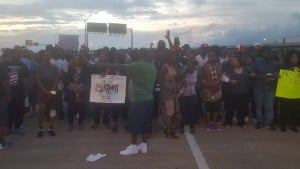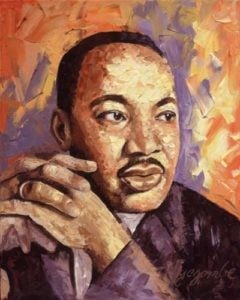 I recently wrote a post that detailed the arrest and humiliation of Dr. Marcia Bowden and her husband Ira Marche. In the post, I talked about how African Americans have this type of frustrated agency. I said
I recently wrote a post that detailed the arrest and humiliation of Dr. Marcia Bowden and her husband Ira Marche. In the post, I talked about how African Americans have this type of frustrated agency. I said
For many of us, this is discouraging because it is what I have called before a frustrated agency—that no matter who you are, no matter what you drive, no matter where you live, no matter how much you support police; no matter your profession, no matter who you know and who know you, no matter what resources you have, no matter how you act, our respectability will not save us! I know it is a hard thing to accept; it is hard to process at times. Matter of fact, it makes you wanna holla. And while it does not stop us from achieving and being the best that we can become, it is a sobering reminder that if we put trust in our degrees, accomplishments, statuses, relationships our location and position in life, one day it could all come crumbling down with one traffic stop.
I briefly spoke with both Dr. Bowden and Marche and without going into detail of the conversation, they are both still shaken by the incident and still trying to unpack what happened to them on that Labor Day afternoon. According the Tri-State Defender (TSD), the unjustified arrest has left them both “completely undone.” The assault left Dr. Bowden so shaken that she had to cancel all of her appointments last week.
While not clear when we first reported, we finally found out the charges. According to Dr. Bowden, she was charged “with failure to obey (an officer) and disturbing the peace,” and the charges against her husband involve the use of profane language.” Marche added that the police officers also charged him with disorderly conduct and speeding, but not driving without a license. Dr. Bowden added in her interview with TSD:
I know this is what happens to our people every single day. To hear about it is so very different from experiencing it. It puts me in a place that I can hardly tolerate. I remember my father (who was in his 70s when he shared this story) telling me a story about his father – and this would be in the 1940s – who was accused of something and the sheriff just burst into their house without any warrant, without any kind of information and searched their home when he was a 4-year-old kid. His heartbreak was palpable. They put his father on the chain gang. …I would look at the look on his face and I was sympathetic, but empathy is a different thing. It was such a different day in that time, but the situation is the same. We haven’t made any progress in our nation. I love America; I love being an American. But what is happening in our country, we’ve got to address!”
This is the other side of police misconduct, or what I like to call state sponsored terrorism. What happens afterward? What happens when you know instinctively that this could happen but it does not become real until it happens to you? Dr. Bowden tells a compelling story of not only the effects of police terror with her, but also how it still shaped her father over 65 years later. The effects are real; the flashbacks are real, the trauma is real and though they are thankful that they are around to share their stories, this abuse will stay with them for a long time.
It is ironic that this happened to one of the top doctors in the area because as many have concluded, we should look at police brutality as a health issue—especially with people of color. The Student National Medical Association (SNMA), established in 1964 by Medical School students, is the nation’s oldest and largest organization focused on the needs and concerns of medical students of color. It defines police brutality “as any act of unmerited excessive and aggressive physical, mental, and/or emotional abuse, above and beyond the law, enacted upon by an individual or groups of individuals in law enforcement.” They further say “police brutality results in potentially severe mental and physical injury. The types of physical injuries sustained are similar to those experienced by victims of violent crime such as assault and homicide.”
However, while noting the physical injuries of police brutality, they are also mindful of the psychological injuries as well. In their Police Brutality Position Statement, they write
Damage caused by police brutality goes beyond the physical. Psychological trauma faced by victim(s) manifests itself in many ways, such as stress, anxiety, fear, paranoia, distrust, insomnia, anorexia, and depression. Such psychological symptoms can further be manifested as Acute Stress Disorder (ASD) and Post–Traumatic Stress Disorder (PTSD). Psychological stress often consumes many facets of victims’ lives, adversely affecting job performance, ability to sustain employment, and everyday interactions with family and associates. Moreover, the families of fatally injured victims often suffer many of the same psychological tolls. Police brutality must be recognized, investigated, and acted upon as a serious health concern because of its obvious deleterious effects on individuals, their families and communities.
Also in my previous post, I shared Dr. Bowden’s letter to the editor in which she shared in detailed how this incident made her physically sick. So on top of her and her husband’s arrest and humiliation, she had to go to the hospital and get treatment for stress. This is a too real phenomenon for many African Americans and a burden just too much to bear.
Andre E. Johnson is the Founder and Managing Editor of R3












